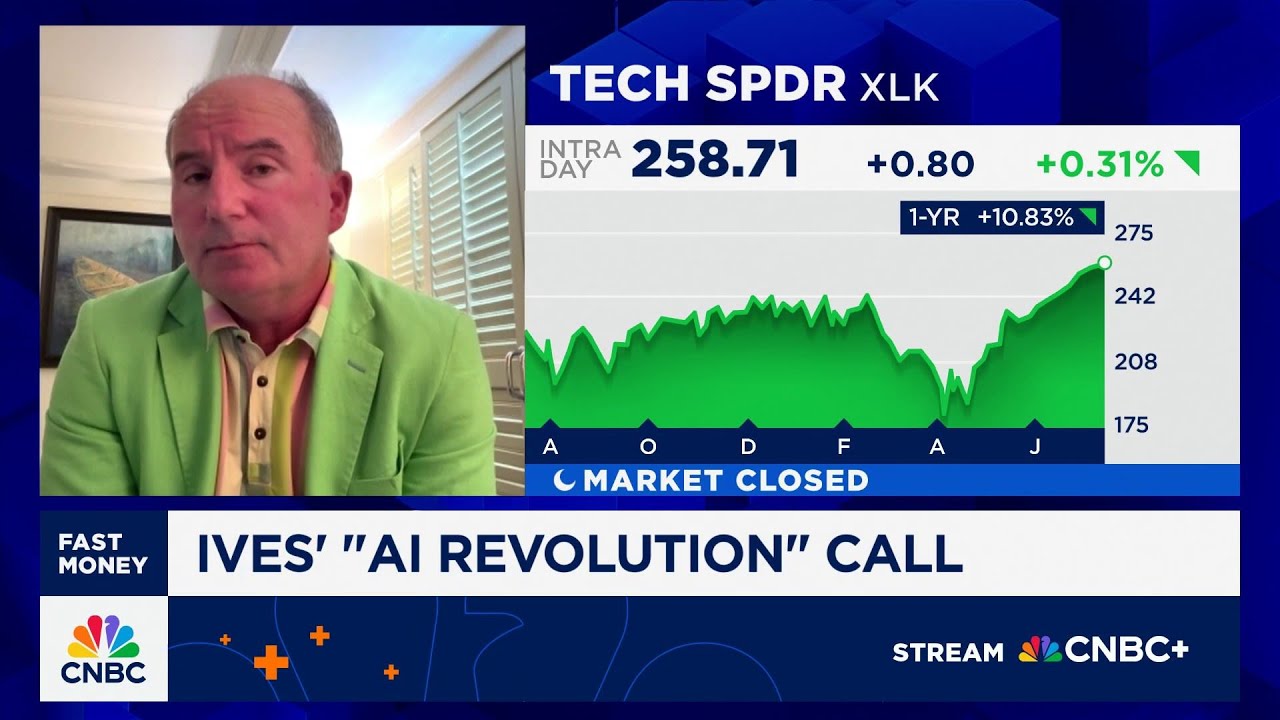Dan Ives of Wedbush predicts significant AI-driven growth in the tech sector, with Microsoft’s market cap potentially rising from $4 trillion to $5 trillion and tech stocks increasing 12-15% in the latter half of the year, driven by expanding AI use cases and accelerating Azure revenue. He views the AI revolution as still in its early stages, highlighting opportunities in software, cybersecurity, and semiconductors, and encourages investors to capitalize on the ongoing transformative growth.
Dan Ives, Wedbush’s global head of technology research, delivered a bullish forecast for the upcoming big tech earnings season, emphasizing the explosive growth driven by artificial intelligence (AI). He highlighted that AI use cases are rapidly expanding, particularly benefiting software companies and hyperscalers like Microsoft and Nvidia. Ives predicts that Microsoft’s market capitalization could grow from $4 trillion to $5 trillion within the next 18 months, driven largely by AI advancements and increased Azure revenue. He expects tech stocks to rise another 12 to 15% in the second half of the year, marking a strong proving ground for the sector.
Ives also pointed out that software companies, which have underperformed recently, are poised for a significant turnaround. He mentioned key players such as Palantir, MongoDB, Snowflake, and IBM, noting that these firms are experiencing a renaissance in growth due to AI monetization and expanding use cases. Cybersecurity is another area within tech that Ives believes could outperform, driven by the increasing importance of protecting AI-driven infrastructure and data.
Regarding Microsoft’s valuation, Ives explained that the key to justifying a $5 trillion market cap lies in accelerating Azure revenue, which he expects to grow substantially over the next 6 to 12 months. He noted that AI currently represents a small portion of Microsoft’s overall revenue but could account for 15 to 20% by next year. This potential growth, he argues, is underestimated by Wall Street by 10 to 15%, supporting his bullish price target of $600 to $700 per share for Microsoft.
Ives also addressed the recent disappointing guidance from ASML, a key player in semiconductor manufacturing equipment, which reflects some unevenness in the tech sector. Despite the weak outlook, he views the sell-off as a buying opportunity, citing the strong demand for semiconductors driven by AI and chipmakers like Nvidia. He believes the semiconductor industry will see a significant upward move in the next three to six months due to the ongoing AI-driven demand-supply imbalance.
Finally, Ives described the AI revolution as being in its “second inning,” suggesting that the stock market still has considerable room to run before peaking, which he estimates could happen in the sixth or seventh inning. With only 4% of enterprises in the U.S. currently spending on AI, he anticipates a major capital expenditure boom as AI adoption accelerates. Ives likened the AI growth phase to a party that has just started, indicating that investors should continue buying tech stocks to capitalize on this transformative industrial revolution.
